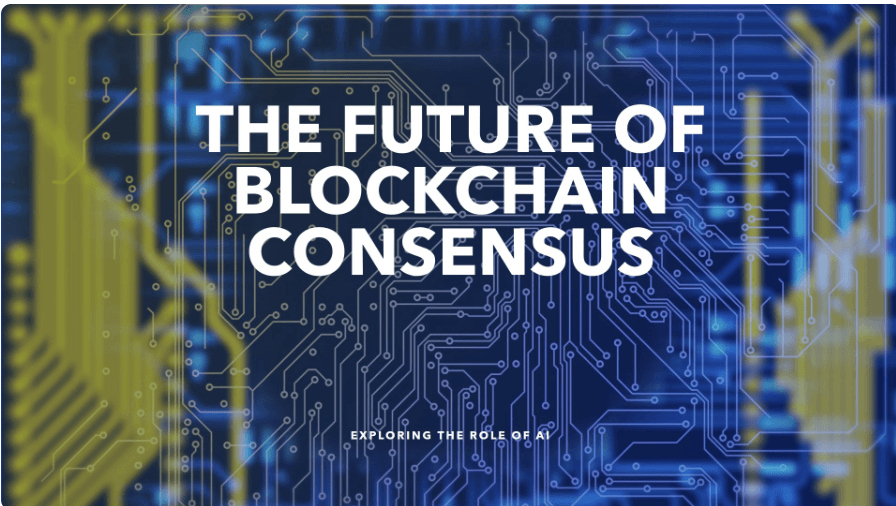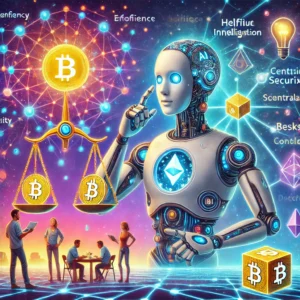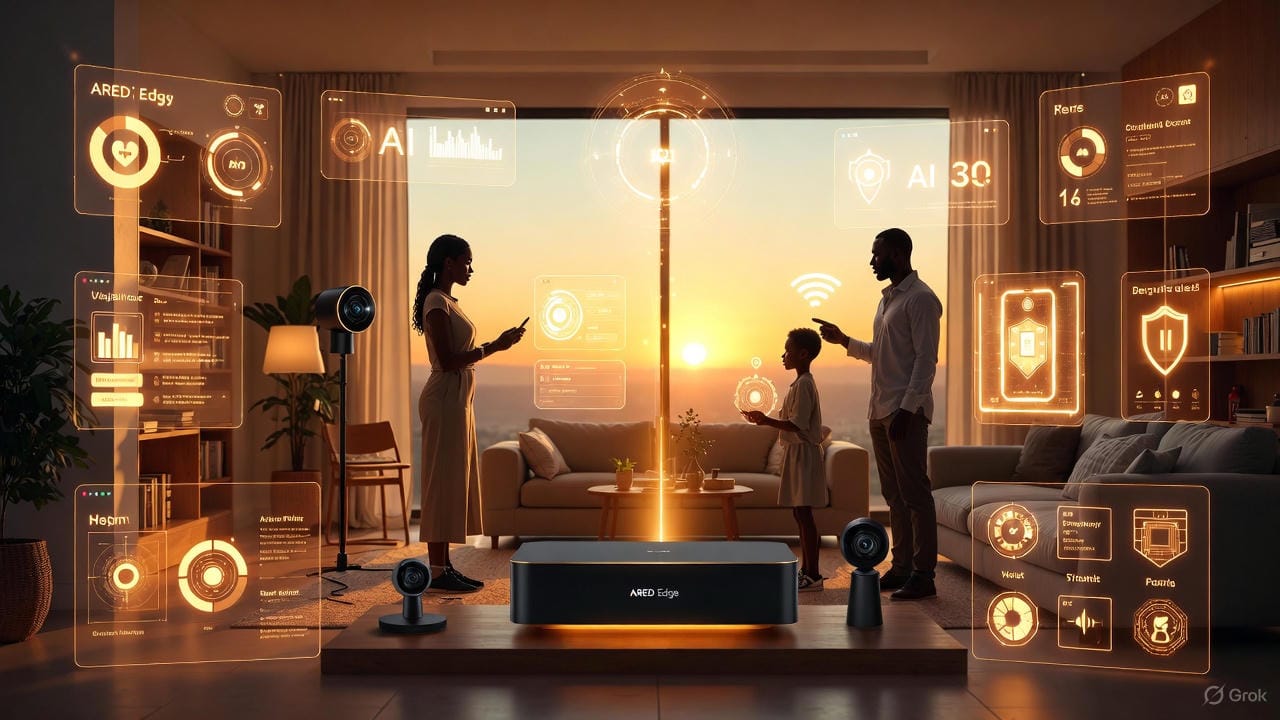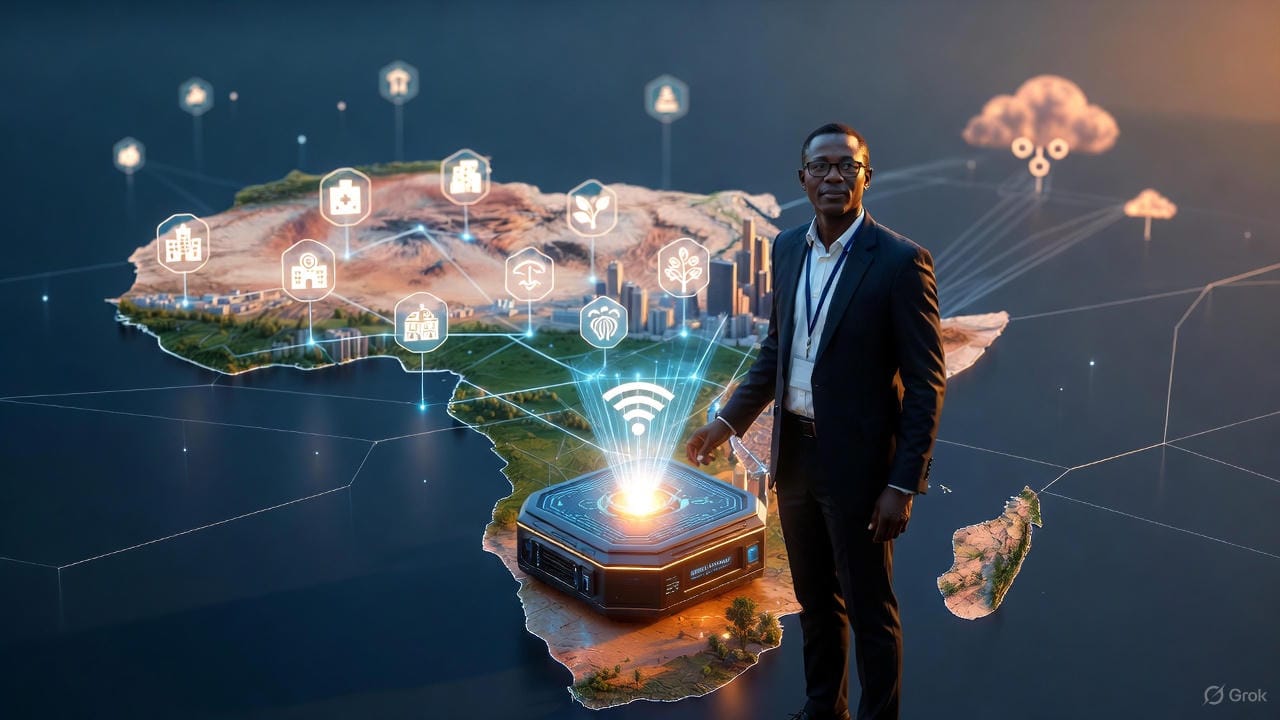
Proof of Intelligence: Should AI Run Blockchain Consensus?
Blockchain technology has revolutionized the way we think about trust, decentralization, and digital transactions. However, as blockchain networks scale, the energy-intensive and time-consuming nature of traditional consensus mechanisms like Proof of Work (PoW) and Proof of Stake (PoS) raises questions about their efficiency. Enter Artificial Intelligence (AI). Could AI-powered consensus mechanisms be the future of blockchain technology?
This blog explores how AI could redefine blockchain consensus, the potential benefits and risks, and whether “Proof of Intelligence” is the next evolutionary step in blockchain.
Understanding Blockchain Consensus
At its core, a blockchain is a distributed ledger that requires consensus among participants to validate and add transactions to the chain. Consensus mechanisms are critical to maintaining the security and integrity of the blockchain. Here are the most common methods:
- Proof of Work (PoW): Miners solve complex mathematical puzzles to validate transactions, ensuring security but consuming vast amounts of energy. Bitcoin famously uses PoW.
- Proof of Stake (PoS): Validators are chosen based on the amount of cryptocurrency they hold and are willing to “stake,” making it more energy-efficient than PoW. Ethereum recently transitioned to PoS.
Both methods have limitations, such as energy consumption, scalability challenges, and susceptibility to attacks. This is where AI might play a transformative role.
For a detailed overview of blockchain infrastructure, check out ARED Group’s blog on AI-powered edge infrastructure.
What is “Proof of Intelligence”?
“Proof of Intelligence” refers to the use of AI algorithms to perform consensus tasks traditionally handled by PoW or PoS. Instead of relying on computational brute force or financial stakes, AI could analyze data patterns, predict network behavior, and validate transactions with speed and efficiency.
Here’s how it could work:
- Data Analysis: AI algorithms analyze transaction data and identify patterns or anomalies.
- Validation: Instead of solving puzzles, AI confirms the validity of transactions through advanced machine learning models.
- Network Health: AI monitors the blockchain for irregularities, ensuring security and stability.
Benefits of AI-Driven Consensus
1. Energy Efficiency
AI-powered consensus mechanisms could drastically reduce the energy required to validate transactions. Unlike PoW, which consumes electricity equivalent to small nations, AI could optimize resources and reduce environmental impact.
2. Speed and Scalability
AI can process and validate transactions much faster than human-designed protocols. This speed could make blockchain networks more scalable, capable of handling thousands of transactions per second.
3. Enhanced Security
AI can detect and respond to anomalies or malicious activities in real-time. Its predictive capabilities could prevent attacks like 51% attacks or double spending.
4. Cost-Effectiveness
With reduced energy and computational requirements, AI-driven consensus could lower the operational costs of maintaining a blockchain network.

Risks of AI-Driven Consensus
While the potential is enormous, integrating AI into blockchain consensus mechanisms isn’t without risks:
1. Centralization
AI models often require significant computational power to train and deploy, which could lead to centralization of resources. This contradicts the decentralized ethos of blockchain.
2. Bias in AI
AI models learn from data, and biased training data could lead to biased consensus decisions. This might undermine the fairness of the blockchain.
3. Complexity and Trust
Blockchain is admired for its transparency and simplicity. Introducing AI adds complexity, making it harder for participants to understand and trust the system.
4. Vulnerability to Exploits
AI systems are susceptible to adversarial attacks and manipulation. If hackers exploit vulnerabilities in the AI, it could compromise the entire blockchain.
Use Cases for AI-Driven Blockchain Consensus
Despite the challenges, there are several promising use cases for AI in blockchain consensus:
1. Supply Chain Management
AI can streamline blockchain networks tracking global supply chains, ensuring faster and more reliable consensus for transactions.
2. DeFi (Decentralized Finance)
AI can improve transaction validation and fraud detection in DeFi platforms, enabling seamless and secure financial services.
3. IoT Integration
For blockchain-based IoT networks, AI can validate large volumes of micro-transactions efficiently, reducing latency and enhancing reliability.
Learn more about how AI integrates with blockchain in IoT.
Can AI Maintain Blockchain’s Decentralization?
One of the biggest debates around AI in blockchain is whether it can maintain decentralization. Blockchain thrives on its distributed nature, where no single entity has control. However, AI requires significant resources, often accessible only to well-funded organizations.
To address this, developers must:
- Open Source AI Models: Ensure that AI algorithms used in consensus are transparent and accessible.
- Collaborative Networks: Encourage community-driven AI model development and deployment.
- Lightweight AI Solutions: Develop AI systems that can run on edge devices, reducing dependency on centralized infrastructure.
For insights into decentralized networks, check out ARED’s exploration of edge infrastructure.
Real-World Examples of AI and Blockchain
Some projects are already exploring the intersection of AI and blockchain:
- SingularityNET: A decentralized AI marketplace that integrates blockchain to manage and distribute AI services.
- Fetch.ai: Combines AI and blockchain for autonomous machine-to-machine transactions in supply chains, transportation, and more.
- Ocean Protocol: Uses blockchain to securely share and monetize data for AI training.
These examples demonstrate the possibilities of AI-enhanced blockchain systems, paving the way for future innovations.
Conclusion: Should AI Run Blockchain Consensus?
The idea of AI-driven consensus, or “Proof of Intelligence,” is both exciting and controversial. It offers solutions to blockchain’s current challenges, including scalability, energy efficiency, and security. However, it also introduces risks such as centralization and trust issues.
To determine if AI should run blockchain consensus, we must balance innovation with the core principles of decentralization. With the right safeguards, AI has the potential to transform blockchain into a more efficient and powerful technology.
The question remains: Are we ready to trust AI with the heart of blockchain?


